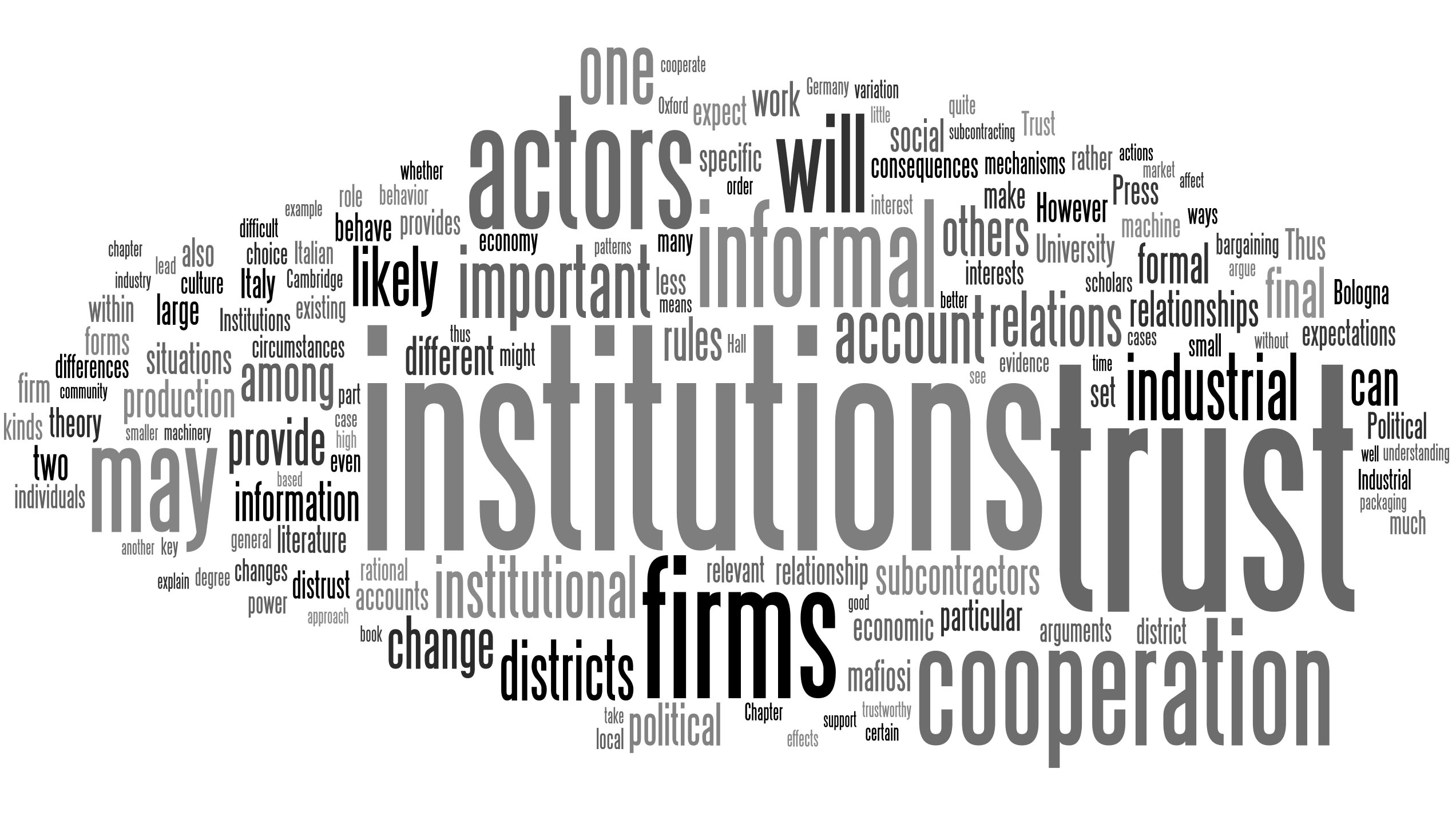 AERA-L |
AERA-L | ABSTRACT: In response to my post "Keynes & Hayek (was 'Re: History of regulation of finance')" [Hake (2011c)], PhysLrnR's William Robertson (2011) wrote (paraphrasing):
"I keep misreading the title 'PhysLrnR' of this list, because I could have sworn the word physics is there but the words politics and economics clearly are not. Must be another of my silly non-sequiturs.""
I think Robertson's misperception is due more to *non-cogito* than *non-sequitur*. According to the statement on the PhysLrnR archive page
, one of the issues upon which PhysLrnR is intended to focus is "Political Policy and Social Impacts on Physics Education Research and the Teaching of Physics."If Physics Education Research (PER) hopes to affect any change in the current educational system IT CANNOT DIVORCE ITSELF FROM POLITICS AND ECONOMICS - witness the baleful effects on teaching and student learning of NCLB and RTT (Race to the Top) in K-12 as discussed in e.g., "The Death and Life of the Great American School System: How Testing and Choice Are Undermining Education" [Ravitch (2010, 2011)].*********************************************In response to my PhysLrnR post "Keynes & Hayek (was 'Re: History of regulation of finance')" [Hake (2011c)], PhysLrnR's William Robertson (2011) wrote:"I keep misreading the title of this list, because I could have sworn the word physics is here but the words politics and economics clearly are not. Must be another of my silly non-sequiturs."I think Robertson's misperception is due more to *non-cogito* than *non-sequitur*. According to the statement at the top of the CLOSED!:-( PhysLrnR archive page .~*~*~*~*~*~*~*~*~*~*~*~*~*~*~*~*~*~*~*~*~*~*~*~*Robertson evidently rejects issue "e" above: POLITICAL POLICY AND SOCIAL IMPACTS ON PER AND THE TEACHING OF PHYSICS" as a legitimate issue of concern for PhysLrnR and (presumably) Physics Education Research. I wonder if he would care to explain his rejection?In "G.O.P. Anti-Federalism Aims at Education" [Hake (2011a)], I wrote: "I agree that my post 'G.O.P. Anti-Federalism Aims at Education' is "somewhat political. But IMHO if Physics Education Research (PER) hopes to affect any change in the current educational system it cannot divorce itself from politics and cannot stick only to what Marx (2011) regards as 'teaching and learning' - both teaching and learning are heavily influenced by politics. . . . .[[and economics, see e.g., 'Re: Evaluations Ignore Education Factors,' (Hake, 2011b)]]. . . . . - witness the baleful effects on teaching and student learning of NCLB and RTT (Race to the Top) in K-12 as discussed in e.g., "The Death and Life of the Great American School System: How Testing and Choice Are Undermining Education"[Ravitch (2010, 2011)]."In my opinion, PER's need to take a "systems approach" to physics education, consistent with the eloquent phrasing of Howard & Elisabeth Odum (1981), pointed to by PhysLrnR Bud Nye (2011):"'Basic scientists,' who define *basic* as 'looking to the parts,' need to learn that putting parts together to understand whole systems is equally basic. The scientist who says that synthesis is 'applied,' as if it were an inferior activity, must ask which is intellectually more difficult and ultimately more basic, reductionism or synthesism. Surely both are necessary, but we have had too little synthesis, and our science curricula in schools have failed to fulfill their promise because of this. The scientist who uses his discipline to learn more and more about less and less must connect his specialty to the real world as an entirety. Anyone who sets boundaries to his field of interest is limiting his capacity to grow. An old discipline has already yielded what it can; now knowledge must be arranged in different ways and given different names...." Howard T. & Elisabeth C. Odum (1981)Howard Odum is a "systems thinker" as evidenced in e.g., "Ecological and General Systems: An Introduction to Systems Ecology" [Odum (1994)] and http://en.wikipedia.org/wiki/Howard_T._Odum. For more on "systems thinking" see "Over Two-Hundred Annotated References on Systems Thinking" [Hake (2009)] and "General Systems Theory" [Urner (2011)].
 AERA-L | ABSTRACT: In response to my post "Keynes & Hayek (was 'Re: History of regulation of finance')" [Hake (2011c)], PhysLrnR's William Robertson (2011) wrote (paraphrasing):
AERA-L | ABSTRACT: In response to my post "Keynes & Hayek (was 'Re: History of regulation of finance')" [Hake (2011c)], PhysLrnR's William Robertson (2011) wrote (paraphrasing):

1 comments:
Thanks for this nice posting i will come
again on your site.
Post a Comment